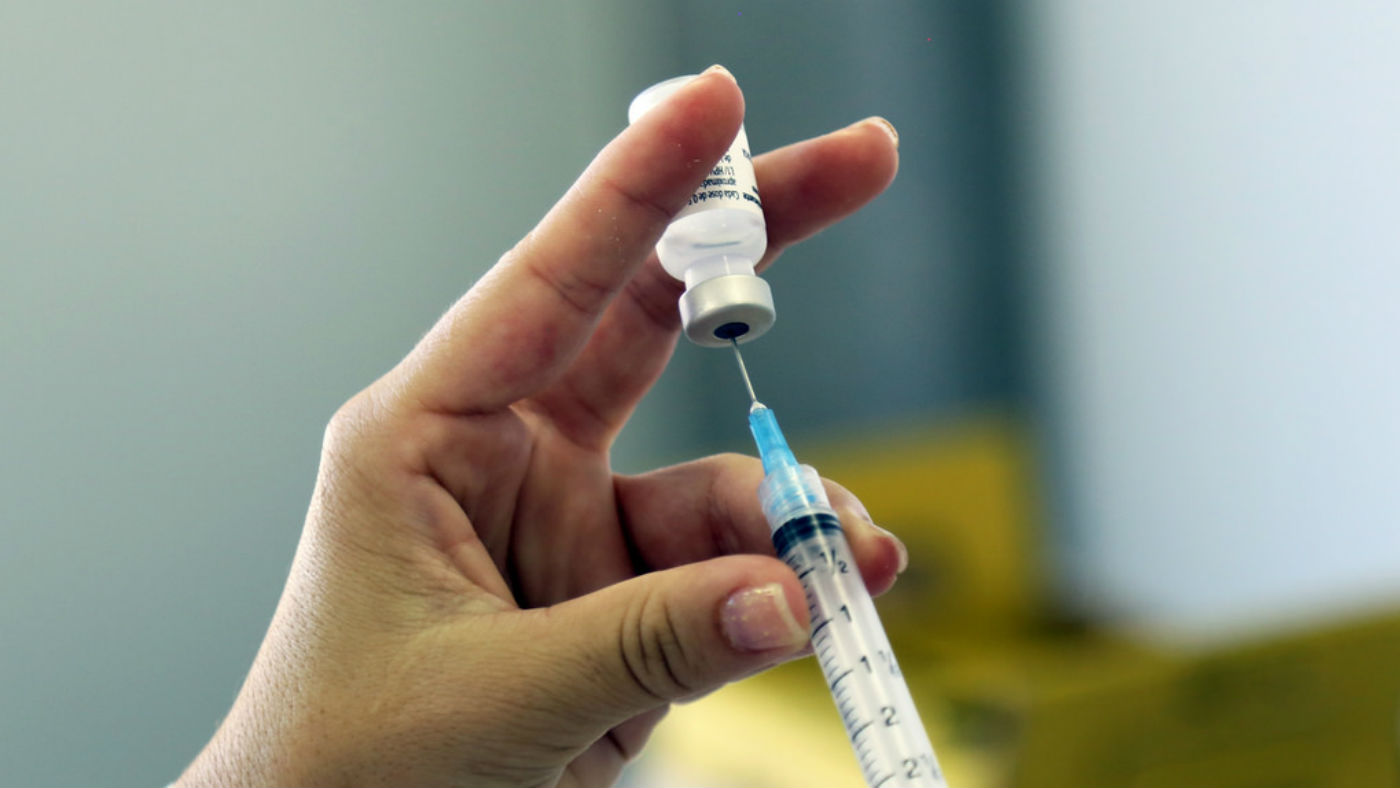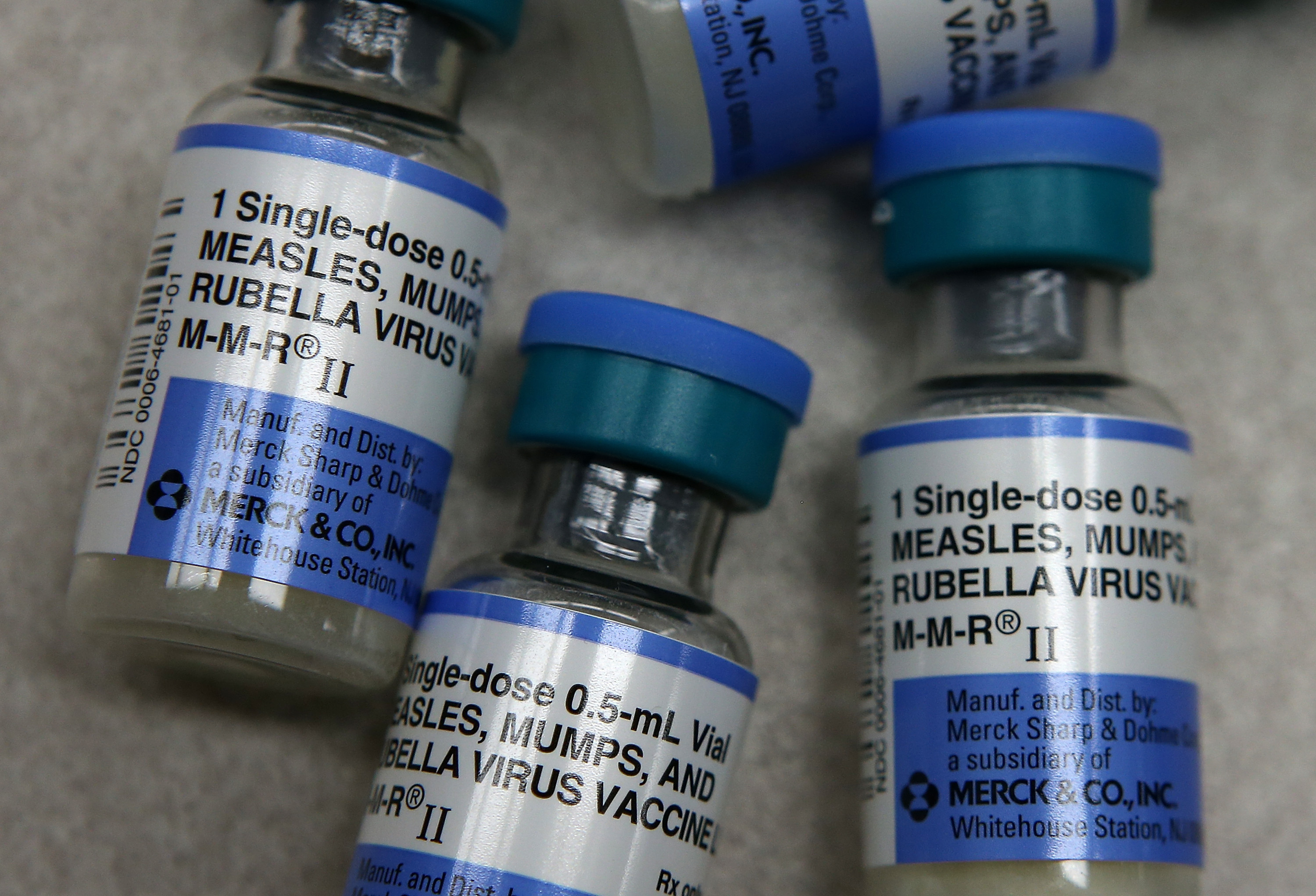What is measles and how dangerous can it be?
More than half a million children in UK missed out on vaccination

A free daily email with the biggest news stories of the day – and the best features from TheWeek.com
You are now subscribed
Your newsletter sign-up was successful
Children’s charity Unicef has called for a renewed focus on immunisation to halve a worldwide surge in measles.
More than 110,000 cases were reported globally in the first three months of the year, up by a quarter compared to the same period in 2018.
The charity said that 21 million children across the world, including 527,000 in the UK, did not receive their measles vaccination between 2010 and 2017.
The Week
Escape your echo chamber. Get the facts behind the news, plus analysis from multiple perspectives.

Sign up for The Week's Free Newsletters
From our morning news briefing to a weekly Good News Newsletter, get the best of The Week delivered directly to your inbox.
From our morning news briefing to a weekly Good News Newsletter, get the best of The Week delivered directly to your inbox.
Earlier this month, the World Health Organisation (WHO) warned that “many countries are in the midst of sizeable measles outbreaks, with all regions of the world experiencing sustained rises in cases”.
Ukraine, Madagascar and India have been worst affected by the disease, “with tens of thousands of reported cases per million people”, reports the BBC.
Since September, at least 800 people have died from measles in Madagascar alone.
The highly contagious infection can be entirely prevented with a two-dose vaccine, but “for some time the WHO has been warning about declining global vaccination rates”, reports The Guardian.
A free daily email with the biggest news stories of the day – and the best features from TheWeek.com
In England there has been a huge rise of measles cases, with experts warning GPs to be on their guard against the disease.
According to Public Health England, there were 738 confirmed cases last year in England, up from 274 cases in 2017.
Here is everything you need to know about measles:
What is measles?
It is a highly infectious illness caused by the rubeola virus. It can be very unpleasant for the sufferer and sometimes lead to serious complications, including: dehydration as a result of diarrhoea and vomiting; middle ear infection; eye infection (conjunctivitis); inflammation of the voice box (laryngitis); pneumonia, bronchitis and croup, infections of the airways and lungs; and fits caused by a fever.
About one in every 15 children with measles will develop complications such as these, reports the NHS.
Anyone can get measles if they haven’t been vaccinated, although it is most common in young children.
Measles can be prevented by having the measles, mumps and rubella (MMR) vaccine.
What are the symptoms?
The initial symptoms of measles develop around ten days after a person has been infected. They can be similar to the common cold or the flu: a runny nose, sneezing, a cough, and a high temperature, as well as sore, red eyes that may be sensitive to light. The major distinction is the appearance of small greyish-white spots on the inside of the cheeks.
A few days later, a red-brown blotchy rash will appear. This usually starts on the head or upper neck, before spreading outwards to the rest of the body.
How is it treated?
There's no specific treatment for measles, and the condition usually improves within seven to ten days. Doctors recommend staying at home until the condition improves, as the infection is highly contagious.
There are ways to alleviate symptoms, such as taking pain relief medication and drinking plenty of fluids to stay hydrated. A GP or pharmacist can recommend medication for younger children.
Cold-like symptoms can be relieved with warm drinks, particularly ones containing lemon or honey, as it may help to relax the airways, loosen mucus and soothe a cough.
How dangerous is it?
In some case, measles can have serious long-term health consequences.
In one in 1,000 cases the virus crosses to the brain and causes swelling, convulsions, brain damage, permanent hearing loss and in some cases even death.
Another long-term effect is Subacute sclerosing panencephalitis (SSPE), a rare, fatal disease of the central nervous system which can occur seven to ten years after a person catches measles.
The Newsroom’s Farah Hancock says: “Death occurs one to three years after the first symptoms of SSPE are noticed. Mood swings progress to uncontrolled jerking movements, then coma and death. There is no cure for SSPE.”
The University of Auckland's Dr Helen Petousis-Harris says measles can also hijack your immune system.
“It actually has a whole lot of consequences I think people don't think about. There's been this idea for, for a long time that, that having a disease like measles strengthens your immune system. It does the opposite," she says.
A recent study, published in ScienceDirect, also showed measles may also cause “immunity amnesia”.
“The damage the measles virus does to the immune system can have a two to three-year effect, leaving the measles sufferer vulnerable to other infectious diseases,” says Hancock.
-
 What is the endgame in the DHS shutdown?
What is the endgame in the DHS shutdown?Today’s Big Question Democrats want to rein in ICE’s immigration crackdown
-
 ‘Poor time management isn’t just an inconvenience’
‘Poor time management isn’t just an inconvenience’Instant Opinion Opinion, comment and editorials of the day
-
 Bad Bunny’s Super Bowl: A win for unity
Bad Bunny’s Super Bowl: A win for unityFeature The global superstar's halftime show was a celebration for everyone to enjoy
-
 Los Angeles area is on 'high alert' after measles exposures
Los Angeles area is on 'high alert' after measles exposuresSpeed Read
-
 U.S. measles outbreak reaches 154 cases
U.S. measles outbreak reaches 154 casesSpeed Read